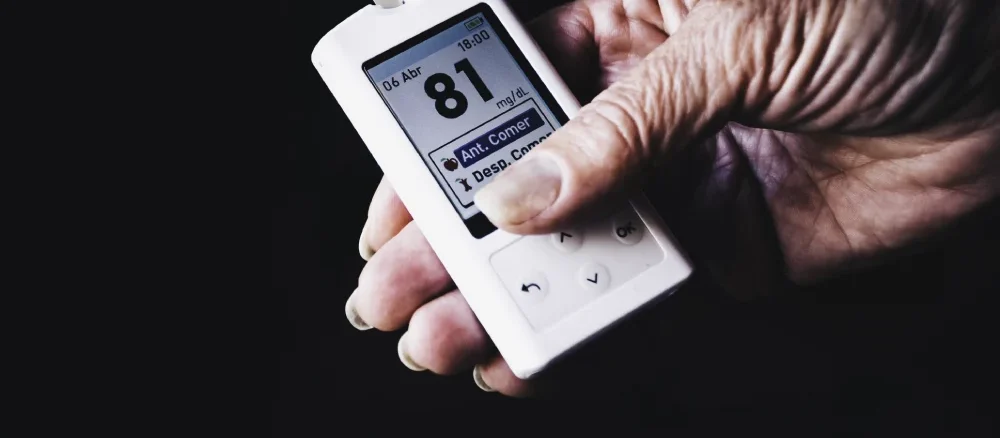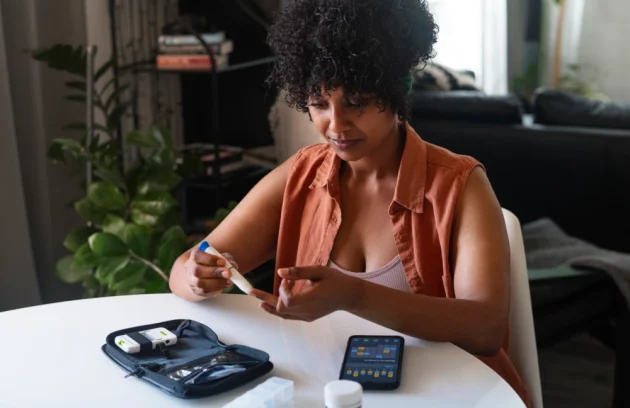- September 27, 2024
- Diabetes Kenya
- Comment: 0
- Acute Complications
Hyperosmolar Hyperglycaemic State (HHS) in Kenya
Hyperosmolar Hyperglycaemic State (HHS) is a serious complication of type 2 diabetes, often triggered by extremely high blood sugar levels (frequently over 40 mmol/l). In Kenya, where healthcare access can be limited, timely recognition and treatment of HHS are critical to prevent life-threatening outcomes.
HHS typically develops over several weeks, often due to a combination of dehydration and illness, such as infections common in Kenya like malaria or respiratory conditions. In some cases, people may not even be aware they have type 2 diabetes until they experience severe symptoms of HHS. While diabetic ketoacidosis (DKA) is more common in people with type 1 diabetes, HHS remains a significant risk for those with type 2 diabetes.
Causes of HHS
Illness or infection
Common illnesses in Kenya, such as typhoid or urinary tract infections, can elevate blood glucose levels.
Dehydration
Limited access to clean water can increase the risk of dehydration, a key factor in HHS development.
Missed diabetes medication
Challenges like lack of access to medication or stopping it due to nausea or swallowing difficulties can worsen blood sugar levels.
Stress hormones
During illness, the body produces hormones that can raise blood sugar levels even if medication is taken.
Symptoms of HHS

Excessive urination

Intense thirst

Nausea

Dry skin

Disorientation and confusion

Drowsiness and, in advanced stages, loss of consciousness
Why HHS is an Emergency
HHS is a potentially life-threatening condition that requires immediate medical attention. Treatment typically involves hospital admission to address dehydration and reduce blood sugar levels through intravenous fluids and insulin.
Unlike diabetic ketoacidosis (DKA), HHS does not usually produce ketones in the urine because people with type 2 diabetes often still produce some insulin. This is why HHS was previously called hyperglycaemic hyperosmolar non-ketotic coma (HONK).
Take your medication consistently
Always take your prescribed diabetes medication, even when feeling unwell or unable to eat.
Monitor your blood sugar
If you have access to a glucometer, check your blood sugar more frequently, especially if unwell.
Stay hydrated
Drink plenty of clean, unsweetened fluids to avoid dehydration.
Replace meals with alternatives
If you cannot eat, consume small snacks or drinks containing carbohydrates to maintain energy levels.
Seek medical advice promptly
Contact your healthcare provider if your blood sugar remains high (above 15 mmol/l) or if symptoms worsen.
Addressing Challenges in Kenya
Access to timely diagnosis, diabetes education, and medical supplies is essential to prevent and manage HHS. Awareness campaigns and community-based diabetes care in underserved areas can play a vital role in reducing the risks associated with HHS. By ensuring access to clean water, affordable medications, and regular screenings, healthcare providers can help mitigate this serious diabetes complication in Kenya.

Hyperosmolar Hyperglycaemic State (HHS)
COMPLICATIONS Hyperosmolar Hyperglycaemic State (HHS) in Kenya Hyperosmolar Hyperglycaemic State (HHS) is a serious complication of type 2…

